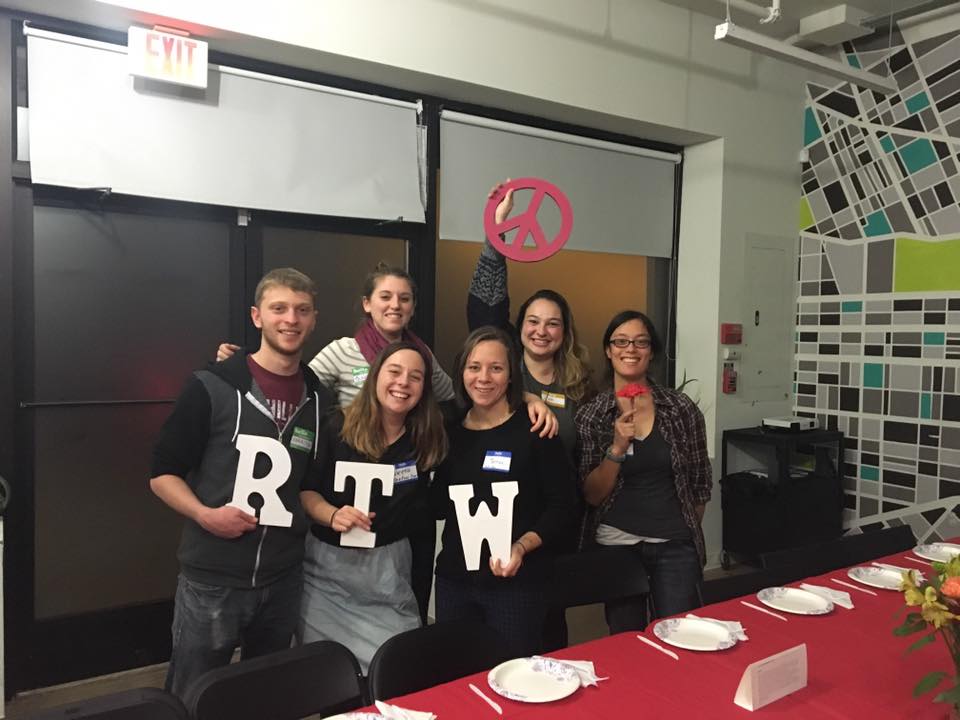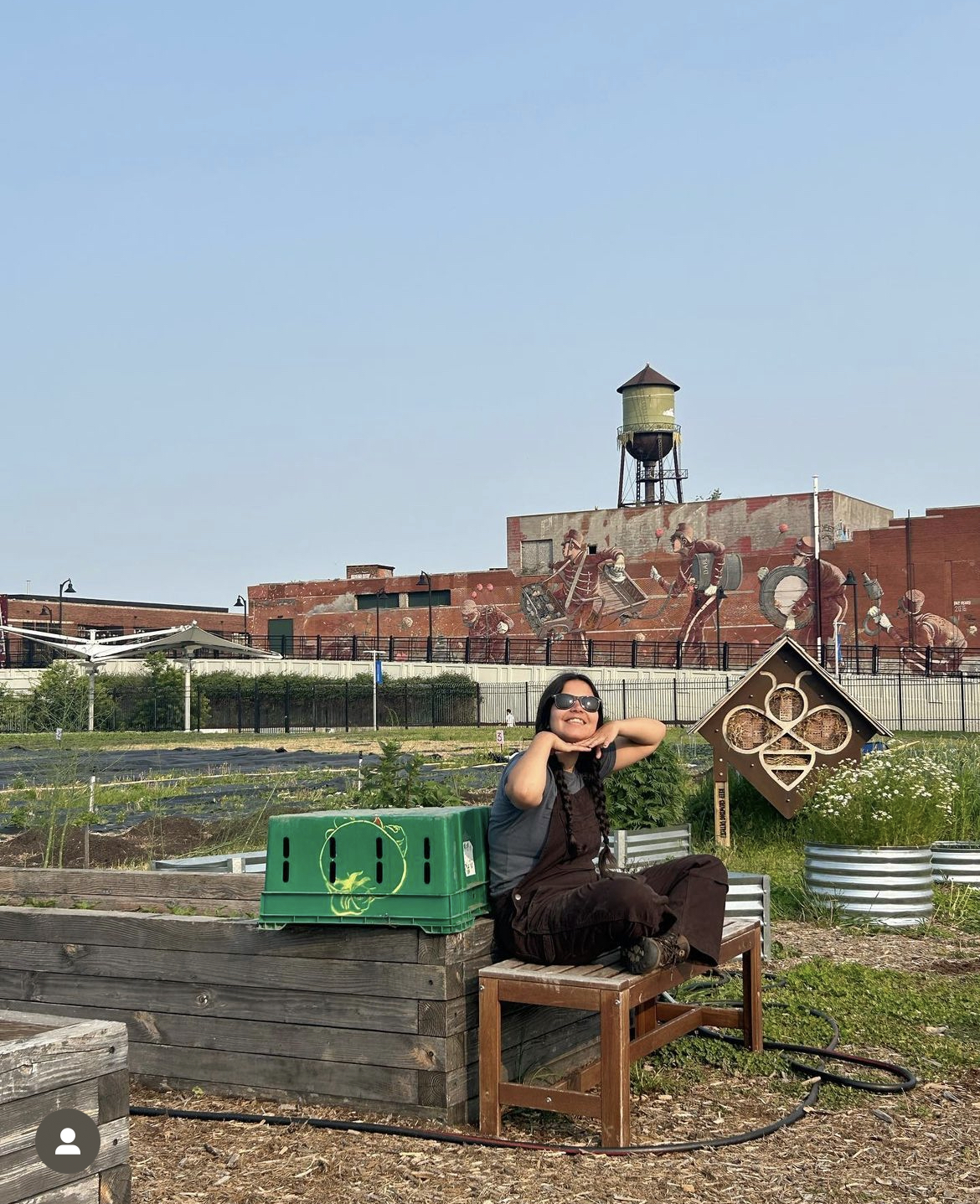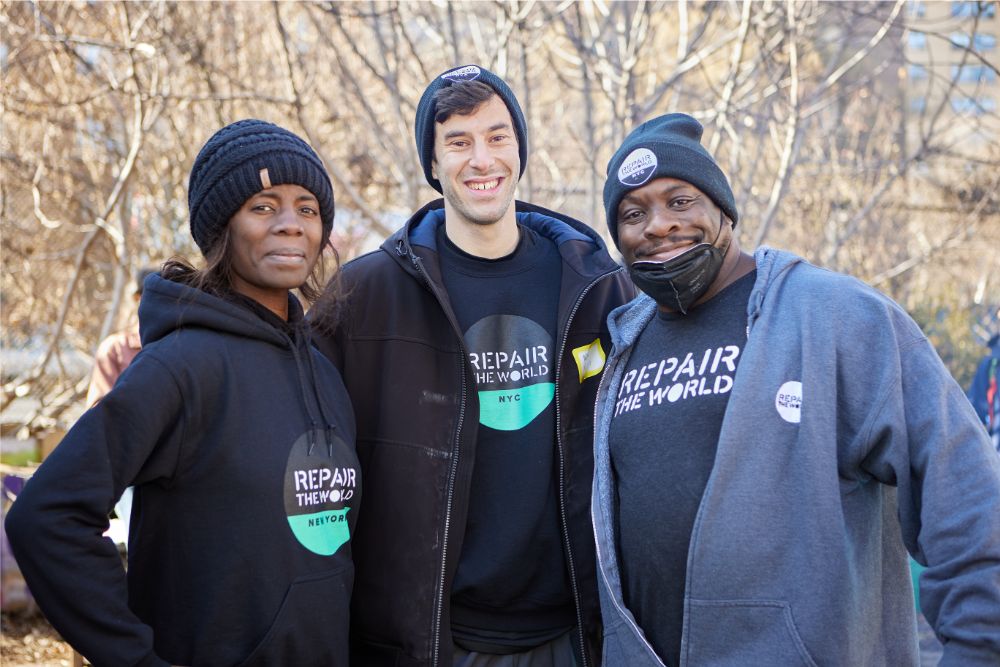Finding a Place in the Jewish Community – a Fellowship Alumna’s Story

Riki (she/her)
As a Jew of Color, Riki (she/her) has experienced the dualities of being Asian American and Jewish. During college, she was heavily involved in community organizing and service and felt a strong obligation to advocate for direct services to historically under-represented and under-resourced communities. During college Riki felt a longing to strengthen her connection to the Jewish community but struggled to find her place in the Jewish community due to how she was othered and marginalized. After Riki graduated in 2018, she applied to become a Repair the World Fellow. “I felt pushed out from the Jewish community in college for being different. It was exciting to me to see that Repair the World had a model for engaging with service and organizing using a Jewish lens, while having an inclusive and expansive way of thinking about Judaism. This opened my eyes to the possibilities of working with Jewish organizations who align with my values,” said Riki. “I was also drawn to living in the communities you serve and connecting with local service organizations in a meaningful way.”
Soon after becoming a fellow, Riki started feeling the gap between her and the Jewish community shorten as she began witnessing Jewish values played out through the service she and volunteers were providing to community members. As a food justice fellow serving with The Campaign Against Hunger (TCAH) in New York City, Riki engaged with countless individuals who used the support of TCAH to access vital resources. She expected that basic needs would be met but it was eye-opening for Riki to see each person served being treated with preciousness, respect, and dignity. “The sheer amount of people from different backgrounds who came through the food pantry everyday and were able to access quality food and supplies, not leftovers or foods that were nearly expired, really struck me” said Riki when reflecting on her time serving with TCAH. “It meant so much to me to serve alongside people who were providing the highest quality care to each community member with a level of dignity that left them feeling seen as people.”

Riki and volunteers gardening
Riki also engaged in extensive learnings throughout the fellowship that continue to shape how she views the world and engages with Judaism. “Which is better? Someone who learns or someone who acts?” As part of Jewish teachings, this is a common question. “One Jewish perspective is that it is best for someone to learn in order to inform their actions. That is something that I thought about deeply while at Repair,” said Riki. “As fellows we learned so much from each other as we came from different experiences. We also had the opportunity to dig deep into learning about the communities we were serving. We were quite aware that we were continuing the work that had already begun and that we were honoring that by serving.”
Riki is now the Program Director at the Jews of Color Initiative’s New York Hub. “I was introduced to the Jews of Color Initiative after their Executive Director, Ilana Kaufman gave a presentation at Repair while I was a fellow.” Riki felt more confident and equipped to continue serving her community in a deeper capacity and through a Jewish lens after her time as a fellow. Riki reflects that her time serving her community as a fellow not only impacted those she served by also changed how she viewed fulfilling her passions while working with Jewish organizations. “I’m now combining my experiences of providing meaningful service as a fellow and my passion for advocacy to ensure Jews of Color in New York have access to necessary resources. I didn’t think I could do this type of work until my fellowship at Repair. Because of it, transitioning into my new role was relatively smooth. I had a better understanding of the Jewish community and a stronger connection to Judaism. This was something I was missing in college but have since gained throughout my time at Repair.”
Riki is the Program Director of the Jews of Color Initiative’s New York Hub. Prior to joining the Initiative, she was a Food Justice Fellow with Repair the World in Brooklyn where she learned about urban farming, food pantries, and SNAP benefits along with a Jewish lens to community engagement. She also has a background working in Asian American Pacific Islander organizations as well as immigration justice groups. Riki is rooted in the theory and praxis of Ethnic Studies that research should be generated by and for community relevance. She received her B.A. in Asian American Studies and Sociology from Pitzer College.


